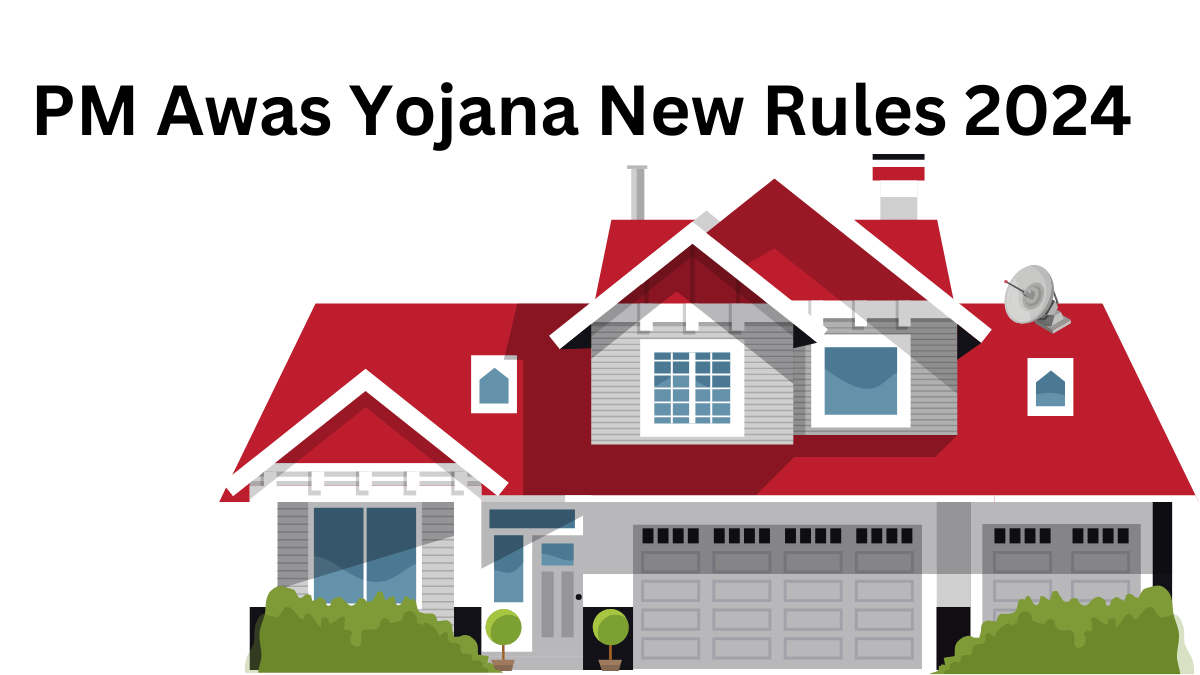The Pradhan Mantri Awas Yojana (PMAY), launched by Prime Minister Narendra Modi in 2016, has been instrumental in providing affordable housing to millions of underprivileged families across India. With its mission of “Housing for All,” the scheme has continued to benefit more households every year. However, due to recent instances of misuse and irregularities, the government has introduced new rules for 2024 to ensure that only genuinely eligible beneficiaries receive these benefits.
Contents
Why Were the New Rules Introduced?
Over the years, several reports have emerged about people exploiting the scheme by providing fraudulent information. This misuse has led to a surge in undeserving individuals acquiring homes, which goes against the scheme’s primary objective of aiding the truly needy. To address these issues, the government has implemented stricter guidelines and penalties under the PMAY for 2024.
Key Changes in PM Awas Yojana Rules 2024
- Stricter Eligibility Verification
- A detailed survey will be conducted to verify the authenticity of beneficiaries.
- Individuals benefiting from the scheme must submit accurate documentation to nearby government offices for scrutiny.
- Heavy Penalties for Fraudulent Beneficiaries
- Anyone found guilty of providing false information to claim benefits will face significant financial penalties.
- Fraudulent beneficiaries will need to repay double the amount of the financial assistance they received.
- Legal Consequences
- Beyond monetary fines, individuals engaging in fraud could face up to two years of imprisonment.
- Focus on Genuine Beneficiaries
- The government aims to ensure that only needy families benefit from the scheme by tightening eligibility checks.
- This step aligns with the goal of providing housing for economically weaker sections (EWS) and low-income groups (LIG).
Survey and Documentation Requirements
Under the new rules, beneficiaries must:
- Provide complete details of their housing status.
- Submit necessary documents such as proof of income, identity, and residency.
- Cooperate with officials during surveys to verify their eligibility.
These measures aim to eliminate discrepancies and ensure that only deserving individuals benefit from the scheme.
Penalties for Non-Compliance
The penalties for fraudulent claims under PMAY have been revised as follows:
- Financial Penalty: Beneficiaries found guilty of fraud must repay double the financial assistance amount received.
- Legal Action: Fraudsters may face legal proceedings, resulting in fines and imprisonment for up to two years.
These strict measures highlight the government’s commitment to transparency and fairness.
Objectives Behind the New Rules
- Preventing Misuse: Ensure that the scheme benefits are not exploited by ineligible individuals.
- Accountability: Introduce stricter penalties to discourage fraudulent claims.
- Equity: Direct resources toward families genuinely in need of housing.
How to Avoid Penalties
If you suspect that your claim under the PMAY may not comply with the new guidelines, it is advisable to:
- Voluntarily report discrepancies to the nearest government office.
- Submit all necessary corrections and documents promptly.
The Importance of Awareness
These new guidelines are a wake-up call for everyone involved in the PMAY scheme. It is crucial for applicants to understand the rules and ensure compliance to avoid penalties or legal consequences. By doing so, beneficiaries can uphold the integrity of the scheme, ensuring it serves its purpose of housing India’s underprivileged.
Conclusion
The PM Awas Yojana has been a beacon of hope for millions, enabling access to affordable housing and transforming lives. However, the recent changes in its rules for 2024 emphasize the government’s dedication to ensuring fairness and transparency. While these new regulations might make obtaining a home more stringent, they ensure that resources are allocated to the rightful beneficiaries. The message is clear: misuse will not be tolerated. For those in genuine need, these reforms promise a brighter future with equitable access to housing under PMAY.
